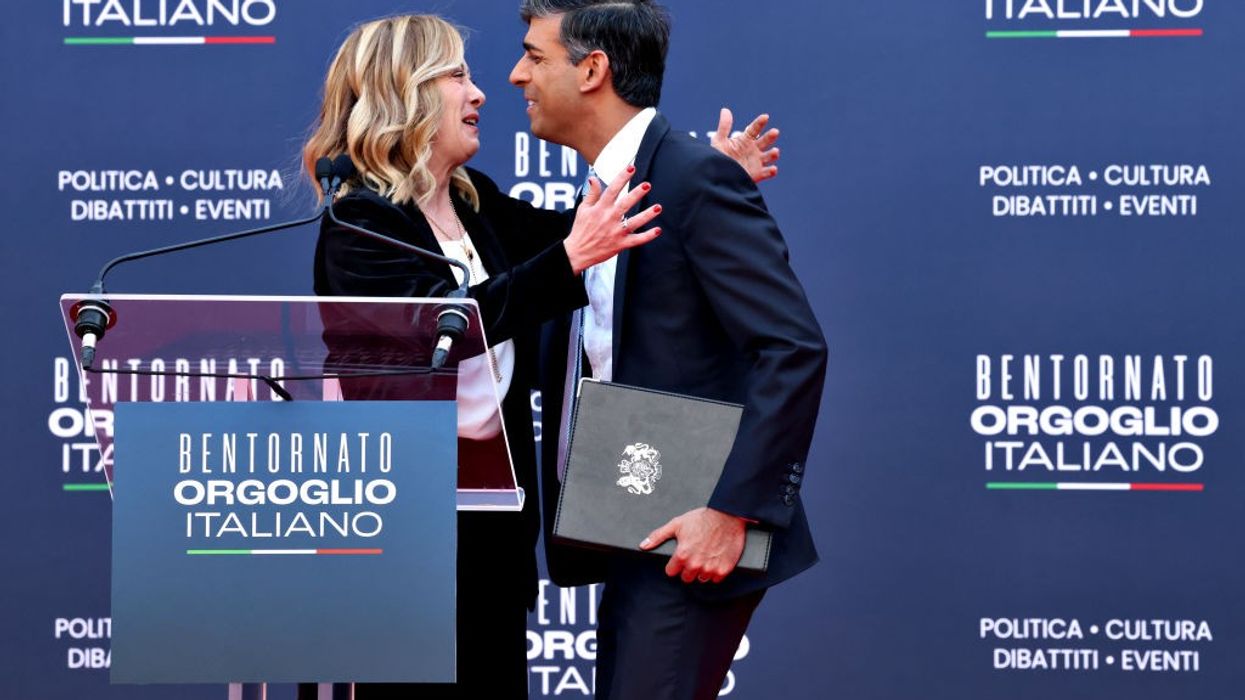PRIME minister Rishi Sunak hailed his Italian counterpart Giorgia Meloni's approach to tackling illegal migration, in a visit to Rome where they agreed to co-fund a project to help migrants return home from Tunisia.
The two leaders held formal talks at Meloni's office on Saturday (16) and the British Conservative leader also delivered a speech at a gathering of her far-right Brothers of Italy party.
Both leaders have vowed to stop migrant boat landings on their country's shores and in his speech, Sunak hailed the willingness of them both to "break from consensus".
They have also both faced strong criticism for their policies, from Sunak's plans to send asylum seekers to Rwanda, to Meloni's moves to limit the activities of charity rescue ships in the Mediterranean.
At their meeting, Sunak and Meloni agreed to fund a project to help repatriations of migrants in Tunisia, the departure country for many migrants trying to reach Europe.
They "committed to co-fund a project to promote and assist the voluntary return of migrants from Tunisia to their countries of origin", Downing Street said.
Meloni's office said this would be in line with existing UN projects, without giving further details.
A good relationship
Sunak and Meloni have formed a good relationship since they both took office in October 2022, and on Saturday he hailed her "conviction and determination".
He compared her to former British premier Margaret Thatcher - and said they needed some of the Iron Lady's "radicalism" to tackle mass migration.
"If we do not tackle this problem, the numbers will only grow. It will overwhelm our countries and our capacity to help those who actually need our help the most," he said.
They both agreed in their meeting to step up efforts to combat people smugglers, but Sunak said deterring people was also key.
"Making that deterrent credible will mean doing things differently, breaking from consensus. And both Giorgia and I are prepared to do that," he said.
He cited a deal with Albania agreed one year ago, under which Albanians arriving in the UK on small boats across the Channel can be sent back immediately.
Since then, the number of Albanians arriving in the UK had fallen by 90 per cent, Sunak said.
Last month, Meloni also agreed a deal with Albania to build two centres in that country to house asylum seekers picked up at sea by the Italian coastguard.
That agreement has sparked criticism in both countries and Albania's Constitutional Court has temporarily blocked its ratification by lawmakers.
Sunak and Meloni also met Saturday with Albanian prime minister Edi Rama - who himself addressed the Atreju conference, saying he was "confident" the deal with Italy would go ahead.
(AFP)




